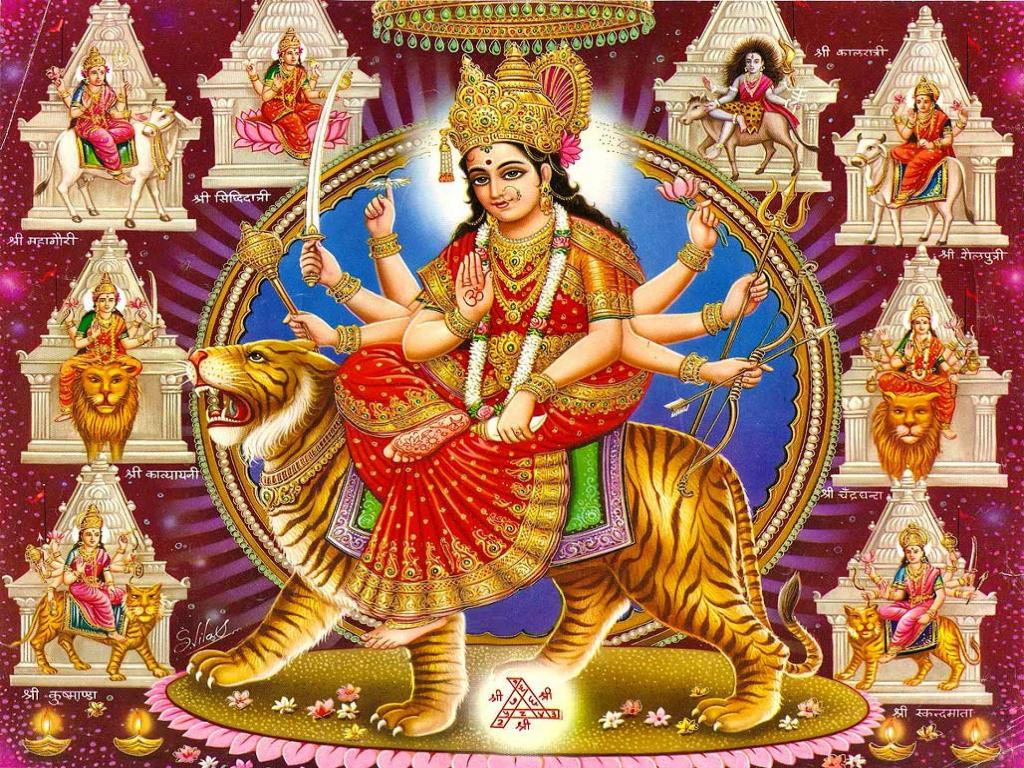Navratri
Navratri, the Festival of Nine Nights (in Sanskrit, nava meaning nine and ratri meaning nights), is a festival dedicated to the worship of the Hindu deity Maa Durga (the Goddess of Valor) along with Maa Lakshmi (the Goddess of Wealth), and Maa Saraswati(he Goddess of Knowledge).
This festival is dedicated to the nine days of worship, fast and festivity. It is the longest and most pious festival of India.
During these nine nights and ten days, nine forms of Shakti/Devi i.e. Nav Durga are worshiped.
Navaratri in India is celebrated five times a year according to Hindu Panchang (Lunar calendar).
- Vasanta Navaratrior Chaitra Navaratricomes in the spring season in the month of Chaitra (March–April) and is observed during the Shukla Paksha (waxing phase of moon) of Chaitra. It marks the start of the New Year as per the Vikrami Samvat (Hindu mythological lunar calendar).The Ninth day is celebrated as Ram Navami; hence it is also called Raama Navratri.
- Ashadha Gupta Navaratri comes in the rainy season in the month of Ashadha (June–July)and is observed during the Ashadha Shukla Paksha (waxing phase of moon).
- Sharad Navaratri is the most important of the Navaratrisand widely celebrated Navratri – the garba navratri. It is also called Maha Navaratri (the Great Navratri)or Ashwin Navratri. It is celebrated duringSharad (beginning of winter, September–October) in the ‘pratipada’ (first day) of the bright fortnight of the month of Ashvina
- Paush Gupt Navaratri or Shakambhari Navaratri falls in the month of Paush (December–January) and is observed during the Paush Shukla Paksha (waxing phase of moon).
- Magha Gupt Navaratri or Shishir Navrartri falls in the month of Magha (January–February)and is observed during the Magha Shukla Paksha (waxing phase of moon).


